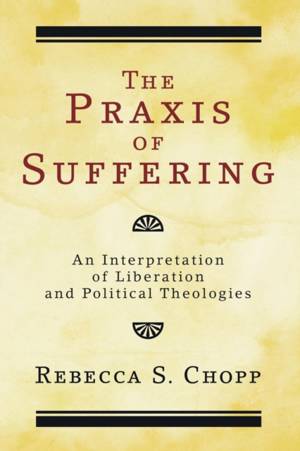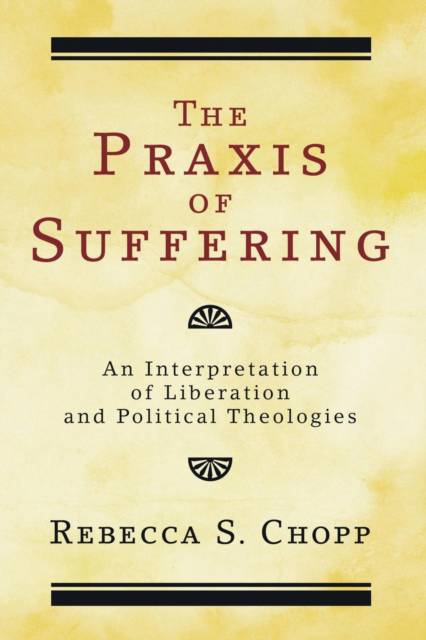
- Retrait gratuit dans votre magasin Club
- 7.000.000 titres dans notre catalogue
- Payer en toute sécurité
- Toujours un magasin près de chez vous
- Retrait gratuit dans votre magasin Club
- 7.000.000 titres dans notre catalogue
- Payer en toute sécurité
- Toujours un magasin près de chez vous
Description
Liberation and political theologies have emerged powerfully in recent years, interrupting the way in which First World Christians both experience and understand their faith. Through an analysis of the cultural and ecclesial contexts of these theological movements, as well as a critical examination of four of their principal exponents--Gustavo Gutierrez, Johann Baptist Metz, Jose Miguez Bonino, and Jurgen Moltmann--the author demonstrates that political and liberation theologies represent a new model of theology, one that proffers a vision of Christian witness as a praxis of solidarity with suffering persons. If I had just one book to recommend as a general introduction for adoption as a textbook on courses on political or liberation theology, it would be Professor Chopp's The Praxis of Suffering. The clarity and depth of her analyses are unsurpassed. Not only does she raise the central theological issues posed by contemporary political and liberation theologies, but she also throws new light on them, thereby creatively contributing to contemporary theology. -- Francis Schuessler Fiorenza, Harvard Divinity School Juxtaposing Latin American liberation theology and European political theology, Rebecca Chopp has produced an uncommonly clear and passionate book. The result is a fresh contribution to the theology which, if it is to be faithful to the methods of liberation and political theologies, has to be done in our own peculiar social and economic context. There will be many readers who learn for the first time from this book how crucial liberation theology is for the future of our own churches. -- M. Douglas Meeks, Vanderbilt University More than any other North American work I know this book wrests from us the realization that Euroamerican theology is inescapably confronted with a paradigm shift from Newtonian to Einsteinian physics. It skillfully interprets what is going on at this time in European political theologies and Latin American liberation theologies. -- Frederick Herzog, Duke University Rebecca Chopp is President and Professor of Philosophy & Religion at Colgate University. Prior to that, she was dean and Titus Street Professor of Theology and Culture at Yale University Divinity School, Emory University's provost and vice president for academic affairs, and Charles Howard Candler Professor of Theology. She also served as dean of faculty and academic affairs at Candler School of Theology from 1993 to 1997. Chopp has authored numerous articles and five books on women's issues and theology. She is a past president of the American Academy of Religion and was theology editor for 'Religious Studies Review', as well as editor-at-large of 'The Christian Century'. Her PhD is from the University of Chicago Divinity School.
Spécifications
Parties prenantes
- Auteur(s) :
- Editeur:
Contenu
- Nombre de pages :
- 190
- Langue:
- Anglais
Caractéristiques
- EAN:
- 9781556352782
- Date de parution :
- 16-03-07
- Format:
- Livre broché
- Format numérique:
- Trade paperback (VS)
- Dimensions :
- 157 mm x 227 mm
- Poids :
- 276 g







